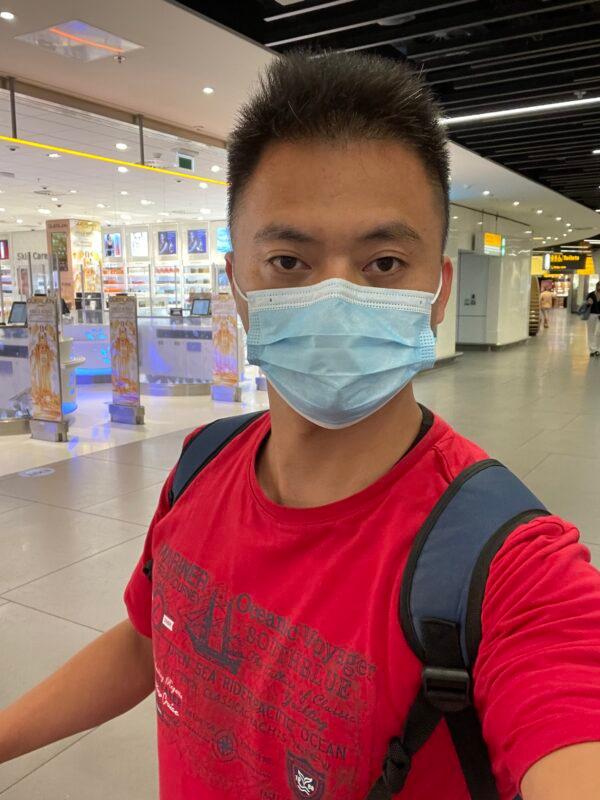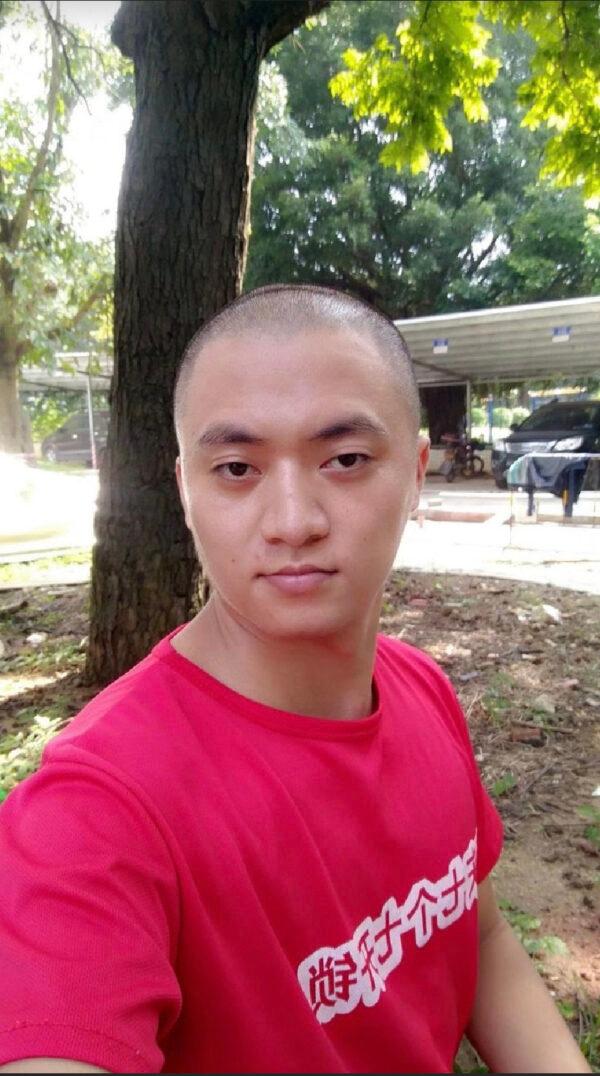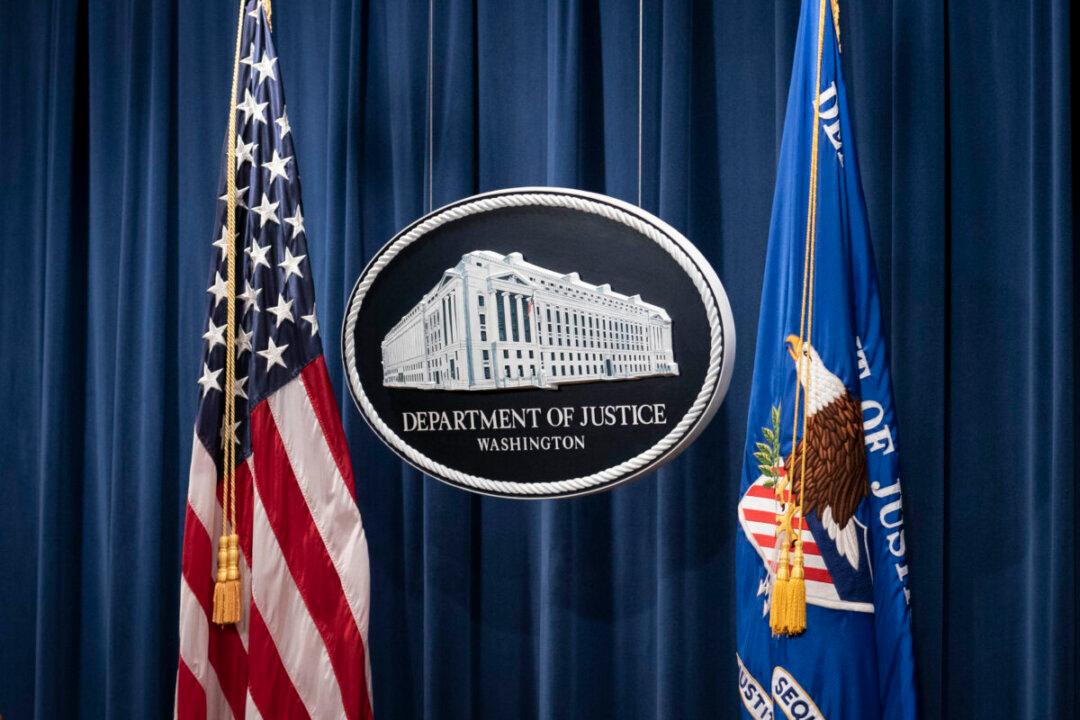A Chinese asylum seeker tells his 10-year story of ordeals in China while exercising free speech, and his endeavor to inform others of the Chinese Communist Party’s (CCP) crimes.
Liu Feilong escaped to the Netherlands on Aug. 29, 2021, after repeated police harassment, imprisonment, and threats on his life for sharing censored information on Chinese social media. He aims to share his knowledge with people who can’t see it inside China.
“I hope that more young Chinese people can breach the Great Firewall of China to learn more real information from the outside world, not being deceived by the lies of the CCP,” Liu told the Chinese edition of The Epoch Times.
“I am fully aware of the perils and costs that I am faced with under the regime’s heavy internet censorship,” Liu said. “Out of conscience, I cannot remain silent on the tyranny and atrocities of the CCP.”
The Chinese internet is strictly limited to state-sponsored propaganda, and the CCP strictly blocks online access to information critical of its actions. However, there are cracks in the Great Firewall, and Liu first found his way through in 2007.
He learned about the Tiananmen Massacre, an event that nearly all Chinese youth are ignorant of. He also learned about the widespread persecution of the spiritual practice Falun Gong. Soon after, Liu renounced his memberships in CCP-affiliated programs that nearly all school children are mandated to join.
In 2011, as the Arab Spring stirred protests in the Middle East, Liu shared information about the Greater Chinese Democratic Jasmine Revolution online through China’s primary search engine Baidu.
“The Chinese regime cannot tolerate any voices of dissent and accusations, which results in a society fraught with injustice,” Liu said.

Police Encounters
The following day, police in his hometown of Zhaoqing city, Guangdong Province, came to his locksmith shop. They interrogated him and reformatted his computer, wiping away all of his banned literature. The officers threatened him with either imprisonment or forcing him to sign documents guaranteeing he would not repeat his behavior.But that didn’t stop Liu.
In August 2014, locals organized a protest against pollution in Zhaoqing. A Greenpeace report from that year listed the city as one of the most polluted in Guangdong. When Liu arrived at the city square for the protest, it was empty. He took a selfie and shared it online.
Once again, the following day, police met with Liu. This time, they called for a lock repair job at an address across from the local station. When he arrived, the police forced him to write a similar guarantee statement as before.
“I was coerced into writing a confession statement, admitting the charge of ‘causing social disorder,'” Liu said.
He again met with the police in 2017 for purchasing a shirt emblazoned with a popular slogan from a Chinese dissident businessman.
Then on July 4, 2018, the Chinese internet saw the “Tide of Splashing Ink,” where a popular live streamer broadcast herself throwing ink on a poster of Chinese leader Xi Jinping. Other Chinese individuals replicated her actions on Twitter, and Liu encouraged others to join in.
“Everyone threw ink on the outdoor CCP propaganda posters, and some were arrested for it,” Liu said. “I urged netizens to pay attention to the arrest and participate in the splashing ink campaign on Twitter.” Despite Twitter being banned in China, it is still monitored, and Liu was arrested this time.
Liu said he was brought to a police station on July 27, 2018. There, along with getting photographed and fingerprinted, he said he sat through 10-hour long interrogations, and had to provide urine and blood samples.
“I once read an online news article mentioning that a Xinjiang young man whose organ matched that of a high ranking official after having a blood test in custody,” Liu said. “He was sentenced to death soon after.”
“I’m afraid my blood samples and physical examinations will be kept in an organ transplant database.”

However, he was released several days later after the police found no evidence of him throwing ink on posters. The same day the police released him, he was sent to a detention center. Thousands of his tweets were used as evidence against him, for allegedly causing social unrest.
Misery in a Detention Center
Liu recounted his misery in the detention center.Small confinement cells are crammed with over a dozen individuals, causing them, including Liu, to sleep on the concrete floor at night. The inmates have to wash the toilets daily, and are given meager meals.
They are forced to memorize and recite regulations, or are deprived of sleep.
“There are two guards on duty in turn, preventing detainees from committing suicide and self-mutilation,” Liu said.
Nearly one month later, Liu posted bail pending trial on Aug. 22, 2018. “When I was released from the detention center, the security police threatened me that they could imprison me for 3 to 5 years with the ‘evidence’ they collected,” Liu said.
Police kept Liu under surveillance after he was released from the detention center. He was required to report his whereabouts to the police twice a week, and report back to the police station every three months.
During his probation, the judicial office tracked his phone’s GPS location. He was assigned to monthly forced labor, and had to repeat CCP ideology to the office.
Liu’s trial ended a year later in 2019. He was sentenced to one-year imprisonment with a probation of 18 months for “picking quarrels and provoking trouble.”
After his release in 2021, Liu obtained a passport and fled to the Netherlands. He is now living in a refugee camp. “I don’t want to risk my life living under the strict surveillance and tyranny of the CCP, as if treading on thin ice,” Liu said.
His mission is not over, though, as he hopes more Chinese youth can break through the Great Firewall and see the true nature of the CCP.




